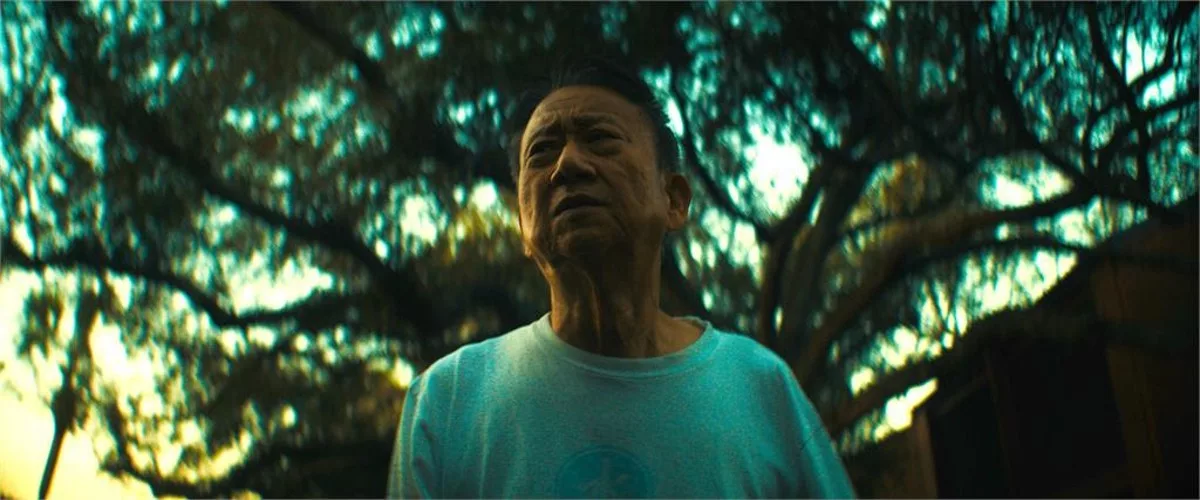“Starring Jerry as Himself” can be filed under “truth is stranger than fiction.” But it’s part truth and part fiction, or at least part drama, so it’s a bit of a slippery movie, in terms of both classification and credibility.
The main character is a businessman named Jerry (Jerry Hsu) who came to America from China decades ago and became one of those people that politicians of every stripe like to single out during speeches as examples of the promise of America fulfilled: successful businessman, successful family man with many children, pillar of his community. Then one day, he gets a call telling him that his bank account is being used to launder money and that he’s going to need to participate in a sting operation run by two cops working for the Chinese government, Officer Zhang (Haosong Yang) and Inspector Ou (Fang Du).
You could call this movie a “subjective documentary” if all documentaries weren’t already subjective in some way. What it mostly “documents” is one family’s version of a bizarre thing that happened to them. It’s loosely based on a true story, and most of the participants play themselves in what feels like a low-budget indie movie version of one of those true crime stories that always appear on American television. (Most of the movie consists of re-enactments, and once it kicks into that mode, the camera adopts an ominous low angle most of the time, and the screen shape becomes CinemaScope dimension, the official visual shorthand for “this is cinematic” whether it actually is or isn’t.)
There’s a tradition in various world cinemas of people playing a version of themselves in stories based on things that really happened (Iran in the 1990s was especially good at these sorts of projects). Still, this one isn’t exactly a work in that tradition. It feels more like an incredibly elaborate home movie but directed by somebody who’s not actually part of the onscreen family: New York-based filmmaker Law Chen, who was also born in China.
I don’t think it entirely works because documentaries that mold themselves after existing fiction film genres don’t truly satisfy unless the story being told could organically fit into that mold. James Marsh’s “Man on Wire,” a film about Phillip Petit’s walk between the Twin Towers, is probably the most successful example, relying heavily on re-creations shot and edited like pieces of a long lost 1970s heist flick.
This one is a pretty widely praised movie, so I guess I’m an outlier in saying that the re-creations are more clever than insightful and that about halfway through the (thankfully brief) 74-minute running time, the determination to make the story fit into a certain prefabricated mold started to grate on me, because you can figure out what’s actually going on pretty fast. After that, I didn’t find the “everyday person gets drawn into a police action” movie to be as inherently engrossing as a hypothetical straight documentary interviewing the participants would have been.
But just because the movie is overthinking things, in a way, doesn’t mean there hasn’t been a great deal of thought put into it. A densely packed and propulsively edited montage of home video from the family opens the movie and sets up the re-enactments. As “Starring Jerry as Himself” unfolds, you do start to realize that the film opened that way for reasons other than the almost guaranteed nostalgia-bath of seeing low-resolution video footage of actual people existing in a long-gone era. This is as much a movie about memory, psychology, and trust as it is an account of an event that seems pretty strange at first glance but becomes stranger, deeper, and sadder once you get to the bottom of it all.




















